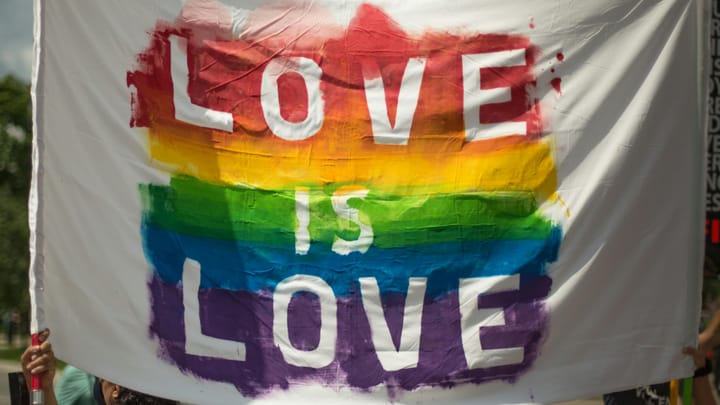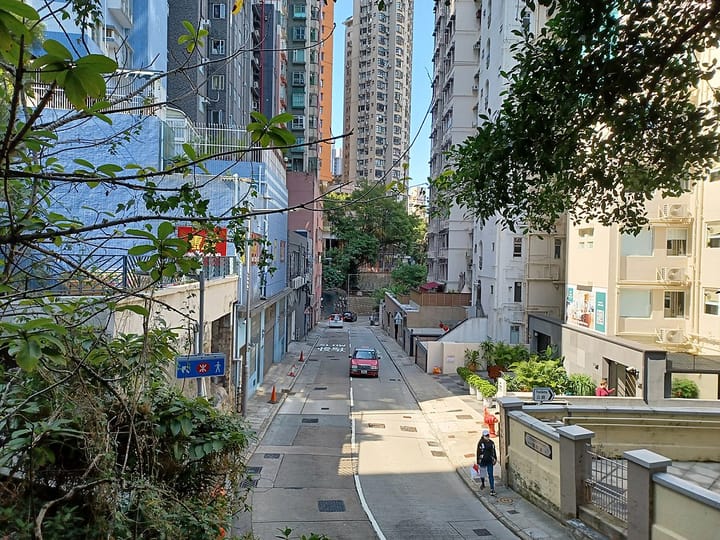Anisha Thai on dancing against discrimination

A few minutes every morning is all you need.
Stay up to date on the world's Headlines and Human Stories. It's fun, it's factual, it's fluff-free.
Exploring her heritage as a mixed-race woman while facing discrimination has been a tough experience, but in doing so it’s encouraged Anisha Thai to use her voice and talents to shape a better future for ethnic minorities across the globe. Having accumulated 56.4K followers on Instagram and 6.75K subscribers on YouTube, Anisha Thai has dedicated her platforms to promoting diversity, spreading African culture in Asia and bridging the gap between cultures through what she describes as her “weapon" – dance. “Dance is a universal language," Thai explains. “You don’t need to talk, you can just connect through dancing."
“I grew up in an environment in which from the day I was born I was listening to music, even from inside the belly of my mum. All the time," Thai says. ”So I feel that there is such a huge connection between us and music. And it’s just therapeutic. Because whenever you are mad or sad, through dance you can express yourself. Or if you are super happy, you can share the happiness with other people. It’s very powerful.”
“What I also love about dancing is that when you dance in front of other people, I feel like it inspires people to not be afraid of who they are," Thai explains. “You transmit an energy, they feel it and they feel different. It’s that impact that is so satisfying."
Half-Vietnamese and half-Comoran, Anisha Thai was born and raised in Paris. However, her desire to learn more about her roots inspired her to travel around the world. “I’ve always had the feeling that I didn’t really belong to Paris," Thai says. “It was very much dominated by white people, and I was made very aware that I was half-African and half-Asian. So, I wanted to understand in what place I would feel the most comfortable. The place I would feel the most myself."
Wanting to “escape" France, Thai decided to move to London. “It was very versatile and diverse," says Thai. “The Jamaican community is also big there, so I felt way more comfortable. But then I thought ‘this is neither Africa nor Asia,’ and I wanted to understand my background and heritage. So, I decided to go to South Africa."
Immersing in the diversity that South Africa has to offer, Thai was intrigued by the “dynamics of how people lived together despite having different backgrounds.”
“Some of them come from a slave background, some from a colonial background," Thai explains. “So, I was very intrigued."
“When I went there [South Africa], they saw me as a foreigner," Thai says. “But they also accepted me in some way because they knew I was African. It was very interesting that people welcomed me despite knowing that I didn’t come from this place."
Living in London and South Africa, Thai also completed her Master’s degree in civil engineering. After receiving an internship based in Hong Kong, she promptly moved to pursue her career. “I love challenges, whether it’s a dance challenge or any kind of challenge," Thai laughs. “For me, at that time, 10 years ago, civil engineering was a male-dominated occupation," she explains. “I thought there was something wrong with that. So, I wanted to show people that it is possible to do something that no one expects you to do. That’s why I chose civil engineering."
While her career in engineering proved to be a “challenge," she knew it was not fulfilling her passion. “I like engineering, but I’m not passionate about it," Thai explains. “I did it to prove to myself that I was capable, but at the end of the day, I love expressing myself."
“I’ve always been dancing," Thai says. “I’ve always known that I cannot live without it. So, I knew that I wanted to give it a shot professionally speaking. When I was studying to make some money, I used to do music videos, choreograph or work on projects like ‘Just Dance.’ So, I’ve always done it on the side."
It wasn’t until two years ago that Thai decided to pursue a career as a dancer, model and influencer. “In this industry, your life can change from one day to another," Thai explains. “From a viral video, you can get visibility, monetize your content, work with brands."
Managing both her passion and career at the same time has been a significant part of her goal to empower women, especially in male-dominated career fields. “I love creating content and collaborating with other artists," Thai says. “So I felt that being a content creator would be a better fit for me when it comes to my creative side. When I came to that realization, I thought that I should jump on it and see where it takes me. I’m not yet a full-time content creator but I would like to make that transition at some point. I’m confident it will happen. It’s just about being consistent."
Thai also has experience teaching street, jazz and hip-hop styles for the past five years, however, her residence in South Africa sparked her interest in Afro dancing. “In South Africa, you don’t have any dance classes or dance schools," Thai explains. “You can go into the streets or to a party and you will see everyone dancing so naturally like it’s in their soul. So I started learning from them."
After her move to Hong Kong, however, Thai began to feel that she was missing a part of her African roots. “I wanted to find a way to reconnect with that and to me, the best way was through dance," she explains. “So I started to watch YouTube videos and teach myself Afro dancing. Then I thought ‘how can I share this with people here in Hong Kong?’ Because, it’s pretty nonexistent."
“I thought teaching classes was a good idea," Thai continues. “For me, it was a way to share my culture and also rebrand Blackness. The way people see Black people here, or in Asia, to me it’s just shocking. It’s just crazy that we are in 2021 and people still don’t care about Black Lives Matter. So, it’s definitely important for me because it’s my identity, it’s my community, it’s my people, it’s who I am, and I wouldn’t feel at peace if I don’t succeed in this mission."
Thai supposes “there’s still a lot of work" and changes to be made for ethnic minorities to feel accepted in Hong Kong. “I think representation is one of the main ways to change the way people perceive other people’,’ she says, as well as “conversations at home.”
“There needs to be a conversation within the family," Thai explains. “[When I first moved to Hong Kong], people only perceived me as a Black woman, which was very surprising to me. The more I told people I’m half-Asian, I’m half-Vietnamese, I know a bit of Mandarin, people started to be a bit more welcoming.
“In Hong Kong, especially, the funny thing is that it’s such a diverse city but there is so much discrimination. We all live together, we all come from different backgrounds, but there’s still that hate, all those microaggressions that you get, just doesn’t make sense."
Thai believes that education on discrimination should start at a young age. “That’s why I love social media," Thai explains. “Those kids have access to different kinds of information, different from what their parents tell them, so they have the freedom to be open to something else. Tik Tok especially is such a powerful platform because those users just speak out, they are vocal, and we see they are very active in terms of anti-racism and all sorts of movements.
“I do believe that social media is one of the most powerful platforms on which kids can be educated. While there is a lot of fake information on social media, I guess we are going in the right direction for now."
As for the future, Thai hopes to make her career as a dancer and influencer a full-time position. “I feel like there is so much I can do, and the fact that I have an impact on those young ladies, women and young men all around the world is just crazy to me," Thai says. “If I can inspire them, if I can push them to reach their goals somehow, I would feel so happy. It’s worth more than all the gold on this planet. So I want to keep pushing people, I want to keep having an impact."
In five years, Thai hopes to continue to connect with people and dancers across the world. “I just want to keep creating, I just want to keep expressing myself," Thai says, “be financially free also, that’s very important to me. I want to live in Hong Kong, but also be able to travel and live life to the fullest."
Have a story to share? Get in touch at contributors@themilsource.com




Comments ()